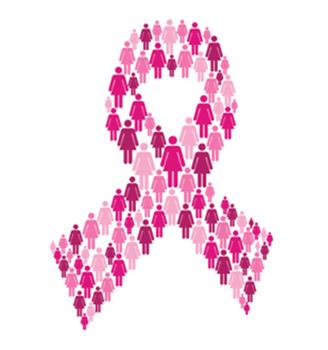You are here
Many breast-cancer patients do not need chemotherapy
By Chicago Tribune (TNS) - Jun 04,2018 - Last updated at Jun 04,2018

Photo courtesy of wordpress.com
Tens of thousands of patients diagnosed early each year with the most common type of breast cancer can now safely avoid chemotherapy treatment without worrying if it is the right choice, researchers say.
The findings, published Sunday in the New England Journal of Medicine, showed that 70 per cent of women diagnosed with the common cancer that has not spread to the lymph nodes can forgo chemotherapy without risking their chance of recurrence or ability to be cured, said Loyola Medicine oncologist Dr Kathy Albain, a co-author of the study and a member of the clinical trial’s steering committee.
“The study should have a huge impact on doctors and patients,” Albain said. “We knew we were overtreating a lot of women with chemotherapy, in our gut. We can de-escalate toxic treatments and do that with certainty.”
The study, which has been closely followed by many oncologists worldwide who have been using earlier findings to guide their treatment of patients since the study began in 2006, was praised by cancer research advocates as progress made possible by cutting-edge advances in genomics.
“I don’t get optimistic about a lot of things, but I’ve been very optimistic about this,” said Otis Brawley, chief medical officer of the American Cancer Society.
Brawley said that in addition to offering patients and doctors peace of mind about forgoing chemotherapy, the findings will prevent tens of thousands of breast cancer patients each year from the debilitating and harmful risks associated with the treatment, including hair loss, nausea, vomiting and being at risk for leukaemia and congestive heart failure.
“Chemotherapy is no Shangri-La,” Brawley said. “We’re saving people these side effects.”
The study was centred on a 21-gene test performed on tumours that has been available for breast cancer patients since the early 2000s. The test examines genes from a patient’s breast cancer biopsy sample and allows doctors to assign a patient a “recurrence score” from zero to 100, according to a news release from Loyola Medicine announcing the findings.
While previous studies demonstrated that patients with low scores (ten or lower) did not need chemotherapy, and women with high scores (above 25) did require and benefit from chemotherapy, there was no conclusive research guiding patients and doctors on whether or not to undergo chemotherapy in cases with a tumour with a midrange score, according to the study.
“It’s a hard enough time for a woman, and they look at you and say, ‘I want to do what you think is best,’ and you have to say, ‘Unfortunately, you’re in a group where there’s uncertainty,’ ” Albain said. “Now I’m going to say, ‘Hey, you don’t need it. Look at these numbers; you’re going to be fine.’ ”
The study enrolled 10,273 women who had the most common type of breast cancer (hormone-receptor positive, HER2 negative) that had not spread to lymph nodes.
Patients were randomly assigned to receive hormone therapy or chemotherapy, followed by hormone therapy.
The study found that for participants with gene test scores between 11 and 25 — especially among women ages 50 to 75 — there was no significant difference between the chemotherapy and no chemotherapy groups. Among women younger than 50, outcomes were similar when gene test scores were 15 or lower. Among younger women with scores 16 to 25, outcomes were slightly better in the chemotherapy group, the study reported.
Jennifer Mall, 47, of Downers Grove, Ill., was a patient of Albain’s who agreed to participate in the study. She was shocked in 2010 when doctors found two tumours in one of her breasts during a mammogram. She had not felt any lumps or symptoms and had no family history of breast cancer before the diagnosis, she said.
Mall underwent a double mastectomy and received hormone treatments, but decided not to go through chemotherapy after discussing the uncertainty of its effectiveness with Albain. But although Mall returned to health soon after her surgery and remains cancer-free today, she said she was haunted by the uncertainty of her decision.
“I worried that there were cancer cells left over in my body that were spreading everywhere because I didn’t have the systemic treatment,” Mall recalled. “Every time I had a pain or a cough in the winter and it just didn’t go away, my mind would take me to: ‘Maybe the cancer is in my lungs now?’ ”
Mall said while she, like many cancer survivors, will never completely be able to erase fear of recurrence, she is thrilled that thousands of women in her situation will be spared the anguish she experienced.
“I don’t ever think I’ll ever have the feeling that I’m completely out of the woods, but this definitely is exciting and makes me feel good,” Mall said.
Albain said research is ongoing, as scientists are now exploring questions about what types of chemotherapy might be effective on various groups based on their genomics, and what will happen to the participants of the clinical trial as even more time passes.
Related Articles
AMMAN — The King Hussein Cancer Foundation (KHCF) on Wednesday held a virtual session for reporters to raise awareness about issues related
It’s long been known that faulty BRCA genes greatly raise the risk for breast cancer. Now scientists say a more recently identified, less common gene can do the same.
By Jeremy OlsonChemotherapy and radiation treatments have helped children survive cancer.












